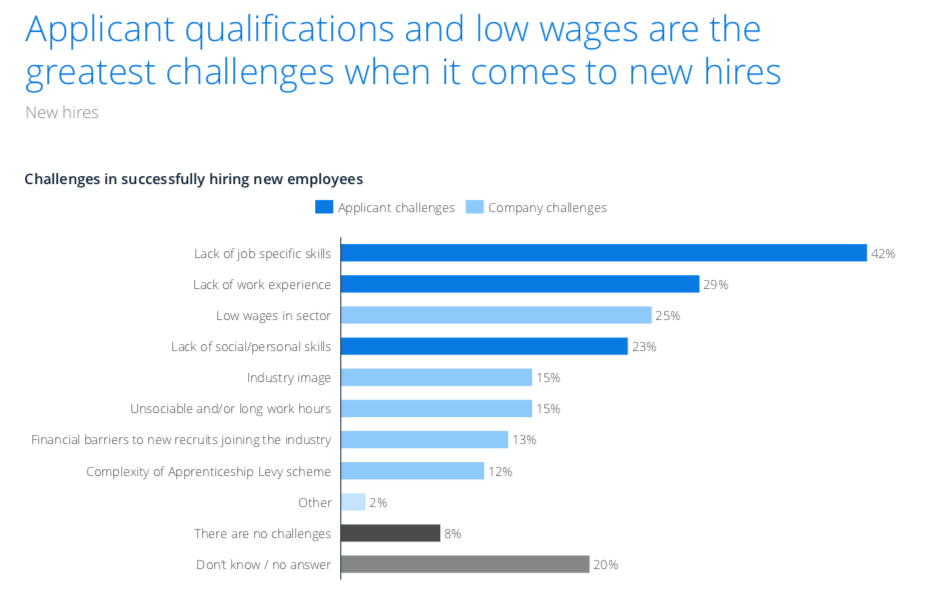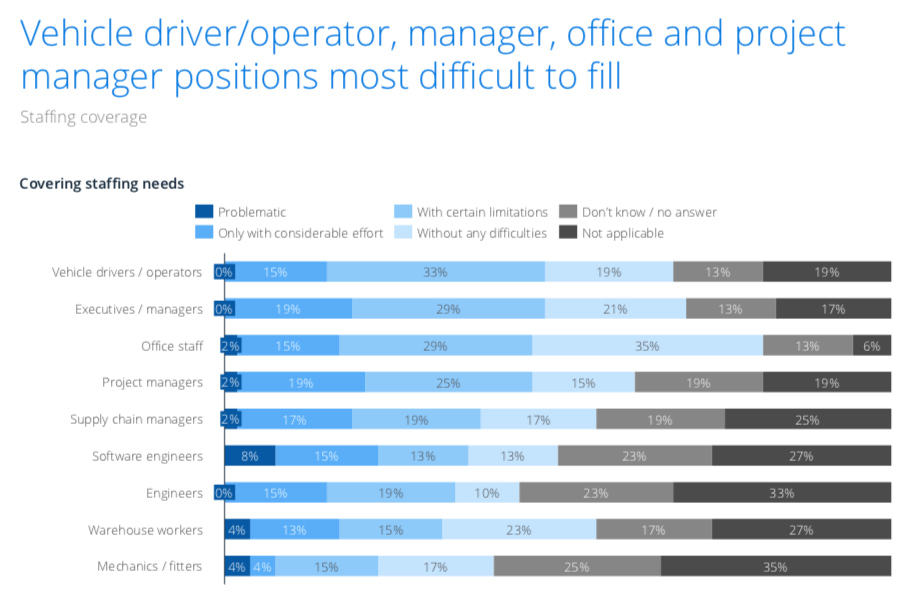-
ROSSLARE EUROPORT TARGETS HEALTH & SAFETY WITH CAMERA TELEMATICS PARTNERSHIP - 2 days ago
-
Landmark Study Reveals Wearable Robotics Significantly Boost Safety and Efficiency in Industrial Environments - July 24, 2024
-
Visku Tackle The Retail Seasonality Challenge One Pallet At A Time - July 22, 2024
-
KAMMAC AND BERGEN LOGISTICS STRENGTHEN FASHION & LIFESTYLE SERVICES IN THE UK - July 19, 2024
-
TENTBOX EXTENDS PARTNERSHIP WITH ARROWXL TO SUPPORT INCREASING DEMAND - July 17, 2024
-
The Perfume Shop improves customer journeys while driving profitability in partnership with Scurri - July 17, 2024
-
ZEROMISSION SECURES £2.3M ($3M) INVESTMENT TO ACCELERATE ELECTRIC FLEETS - July 16, 2024
-
BCMPA CELEBRATES SUCCESS OF 2024 CONFERENCE - July 15, 2024
-
Best of the Best: Jungheinrich Celebrates Triple International Award Win - July 12, 2024
-
GOPLASTICPALLETS.COM CALLS ON NEW CHANCELLOR RACHEL REEVES TO CONSIDER PLASTIC PACKAGING TAX REFORM - July 10, 2024
Logistics sector facing severe skills shortage in next five years, CILT finds
New report from Chartered Institute of Logistics and Transport (CILT) and Statista highlights recruitment issues ahead in the logistics sector
The logistics sector is bracing itself for a tough time with recruitment in the coming years thanks to low wages and a lack of relevant skills. That’s according to a new joint report from the Chartered Institute of Logistics and Transport (CILT) and Statista.
According to the report, 54% of logistics companies are expecting skills shortages to increase over the next five years, whereas 21% are uncertain as to their future recruitment ability, and only 4% expect the skills shortage to improve.
While office staff, vehicle drivers and warehouse workers are the most likely to be in high demand, software engineers, project managers and executives are the hardest roles to fill. 42% of logistics firms cite lack of job-specific skills as the main barrier to successful recruitment, with lack of work experience (29%), and low wages (25%) the other most common challenges.

As the logistics sector is looking to invest more in technologies to drive efficiency, software engineers in particular are proving the most difficult to recruit, with 23% of logistics saying that it is “problematic” to recruit tech talent, or only possible with “considerable effort”.
These are the findings from a report entitled UK Logistics Monitor 2019 by CILT and Statista, which offers a comprehensive overview of the market situation in the UK logistics sector — identifying current developments and trends, while offering insights into human resources, recruitment, health and safety and the impact of Brexit on the sector.
In an attempt to make the logistics sector a more attractive industry in which to work, UK logistics firms are implementing flexible working patterns, focusing on diversity, and improving career paths. However, a lack of time and interest on training on the part of employees may hinder these efforts to retain staff.
Kevin Richardson, chief executive at CILT said: “In terms of recruitment, the next few years are going to be a concern for logistics firms in the UK. We are seeing the uncertainty that surrounds Brexit force the problem to worsen as employees seek to find career paths that offer more stability.
“There needs to be more done to attract talent to the industry. Logistics is hugely important to the UK economy, and if the sector is struggling to recruit the effects will be felt by other industries that rely on logistics to operate effectively.”


































